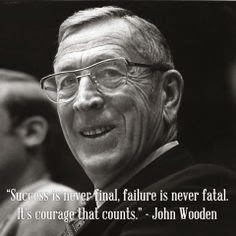But the recession is having an impact on that as well.
Sports teams still need to have a certain number of players to fill out their rosters, and they need a head coach (or manager, as such a person is called in baseball) and assistant coaches. How large a given team's front–office staff happens to be depends, I suppose, on the owner and his/her organizational needs. But, having said that, I must add that I have heard no reports about job cuts by sports teams.
However, there are other indications that sports teams are under mounting financial pressure.
 For example, there is an interesting article by radio show host Clark Howard at CNN.com, in which he reports on the bargain prices fans can get for tickets to sports events these days.
For example, there is an interesting article by radio show host Clark Howard at CNN.com, in which he reports on the bargain prices fans can get for tickets to sports events these days.I've been a sports fan all my life. I used to drive to St. Louis every year to go to Cardinals games with my best friend from high school, who moved up there more than 20 years ago. I've been to many college football games, as well as a few pro football games, but I would be hard pressed to recall the last time I went to a sports event. And a big part of the reason was the price of tickets.
Not so long ago, the big story in sports was how ticket prices continued to go up in every sport. Fans complained about it but, apparently, continued to fork over increasingly high prices for tickets — as well as escalating prices for food and drinks and souvenirs.
Howard observes the deals being offered on tickets these days and speculates that the next phase will be "real labor strife in the professional leagues," which he suggests could lead to lockdowns in professional sports.
"Sports figures are entertainers," he writes, making an important point. Most athletes work hard during the offseason, as well as during the regular season, but they are entertainers, the same as rock musicians performing in concerts or actors whose portrayals — in person or on the silver screen — have been bringing in millions of dollars in revenue every year.
These days, if people are having to choose between buying tickets to a baseball game or putting food on the table, it's not hard to guess which one most people are going to choose. If they absolutely have to see the game, most people will watch it on TV and have a hot dog and a beer at home instead of driving to the ballpark, paying to park their cars and then paying for concessions on top of paying for tickets.
For many people, the choices are no longer the easy ones like the one I just described. These days, many people are having to choose between whether to continue paying the mortgage or continue paying for their COBRA health insurance benefits. That's a tougher choice, but many people will opt to make sure there is a roof over their heads and gamble that their good health will continue.
If nothing else, facing choices like that forces people to prioritize. And anything that qualifies as entertainment is regarded as a luxury — one that many people feel they cannot afford.
Howard concedes that viewing professional athletes as entertainers may not be a popular opinion, but "I think that as entertainers they should be able to make whatever the market will bear. That market is going to bear a lot less, and those entertainers are going to make less moving forward. But it also means that so many professional teams that have been priced out of your league are now going to be affordable again for the ordinary fan to go see."
If Howard is right, what will that mean in the ongoing tug-of-war between sports and steroids? Players like Alex Rodriguez have high-salary, guaranteed contracts, but what about the lesser talents who will face more and more pressure just to be able to win a spot on the roster? Will there be even more temptation to use steroids as budgets get squeezed tighter and tighter?
I'm inclined to think that there will be. It's another example of how neglect is catching up with us, and there is a high price to be paid for it. But it's a price that will have to be paid in ways that don't depend raising rates at the turnstiles.
The fans can no longer afford it.








